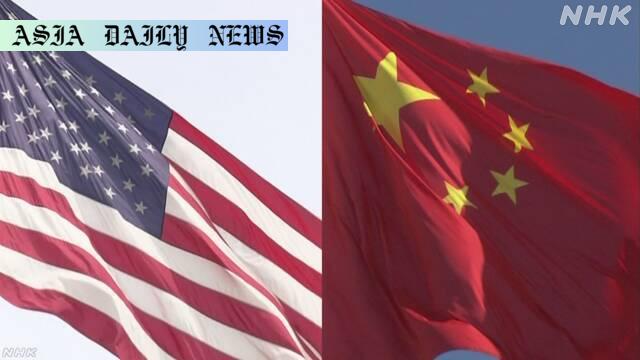US Postal Service temporarily suspends parcel acceptance from China and Hong Kong.
US Postal Service suspends parcel acceptance from China and Hong Kong.
President Trump signs executive order imposing extra tariffs.
Chinese online retailers like Temu, Shein could face disruptions.
US trade law allows duty-free imports below $800, boosting these firms.

US Postal Service Suspends Parcel Acceptance
The US Postal Service announced a temporary suspension of parcel acceptance from China and Hong Kong. Although the exact duration of the measure remains unclear, the decision is a significant move amidst rising trade tensions between the United States and China. Media outlets speculate that the move could lead to logistical delays, affecting businesses and consumers alike. Retailers in China, particularly e-commerce giants such as Temu and Shein, might face significant disruptions as a result.
US Trade Law and Duty-Free Imports
Under current US trade law, goods valued under $800 are permitted entry without customs duties. This provision has provided a significant advantage to Chinese mail-order companies, allowing them to rapidly expand their market share within the United States. These firms have capitalized on competitive pricing and this duty-free treatment to entice US consumers, fueling their growth in one of the world’s largest markets.
Impact of New Tariff Policies
The latest announcement follows an executive order signed by President Donald Trump, introducing an additional 10% tariff on all goods imported from China. This order also revokes the duty-free import privilege, a move aimed at curbing the dominance of Chinese businesses in the US retail sector. The imposition of tariffs will likely raise costs for these companies, potentially reducing their competitive edge in the marketplace.
Potential Ramifications for Businesses and Consumers
The suspension of parcel services and implementation of tariffs may drastically alter the e-commerce landscape in the US. Many small businesses and independent consumers rely heavily on affordable imports from Chinese platforms. Any delay or increased cost could trickle down to consumers, causing dissatisfaction and influencing purchasing behaviors. Moreover, US companies that rely on sourcing components or goods from China may encounter additional hurdles in managing their supply chains.
Broader Implications for US-China Trade Relations
The Postal Service’s decision and tariff imposition are part of a broader strategy to recalibrate the trade imbalance between the US and China. While these measures may address some economic concerns, they risk exacerbating tensions in an already strained relationship. Such steps could prompt retaliatory actions from China, further complicating bilateral commerce and increasing uncertainty in global trade.
Conclusion: What Lies Ahead?
As the situation unfolds, the impact on US-China trade relations will likely extend beyond the immediate effects on parcel delivery and e-commerce. Businesses must proactively adapt to these changes, reassess their supply chains, and strategize to navigate higher tariffs and potential delays. Consumers, on the other hand, may need to brace for potential price hikes on goods and longer delivery timelines. The Postal Service’s decision could have ripple effects, reshaping not just trade but also public sentiment about global commerce in the long term.



Commentary
A Significant Move by the US Postal Service
The US Postal Service’s announcement to temporarily suspend acceptance of parcels from China and Hong Kong is a bold decision that highlights the growing complexities in international trade. For years, Chinese e-commerce platforms have leveraged cost advantages and duty-free import laws to gain a foothold in the US market. This policy shift marks a turning point, aiming to address economic imbalances while prioritizing domestic interests.
The Larger Context: US-China Trade Tensions
It’s evident that this action is not an isolated move but rather a piece of a larger puzzle in the ongoing US-China trade dispute. President Trump’s executive order to revoke duty-free privileges and impose additional tariffs underscores a clear intention to curb the dominance of Chinese businesses in the United States. However, such approaches can have unintended consequences, potentially straining relations further and inviting retaliatory measures from Beijing.
Consumers and Businesses Caught Amidst the Struggle
While the intent of these measures may be well-meaning from a policy standpoint, they leave both businesses and consumers grappling with uncertainty. Small enterprises heavily reliant on affordable Chinese imports may face higher costs and logistical disruptions. Meanwhile, American consumers accustomed to inexpensive fast fashion or electronics could see price hikes that affect their purchasing power. In essence, this move could indirectly shift the economic burden onto US households and firms.
Balancing Trade Policies with Global Cooperation
As the global economy becomes increasingly interconnected, policymakers need to strike a delicate balance between protecting domestic interests and fostering international cooperation. While the suspension of parcel acceptance sends a strong message, it also risks alienating a key trade partner and disrupting global supply chains. Moving forward, it will be essential for all stakeholders to engage in constructive dialogues that address trade inequities without undermining economic growth or consumer welfare.